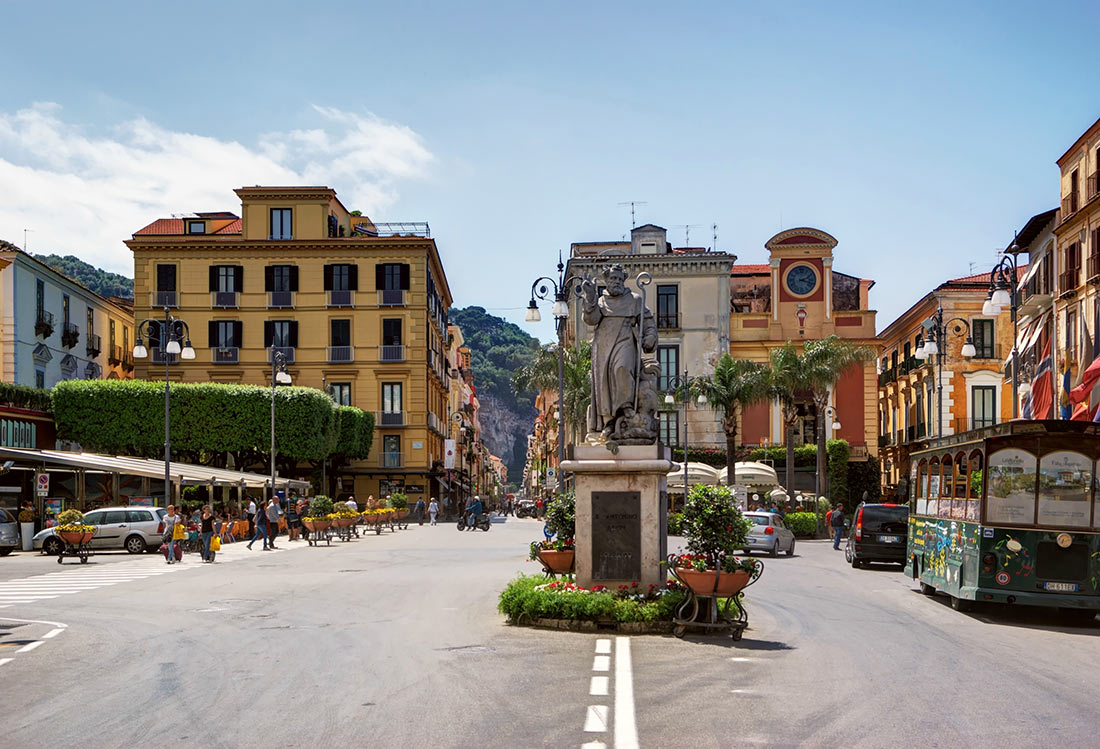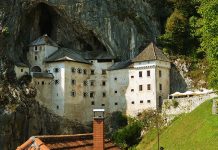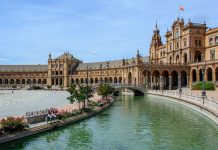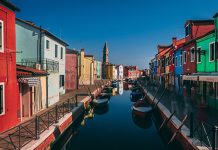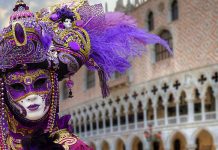The small town of Sorrento is located among lemon and orange groves on the south side of the Gulf of Naples, surrounded by rocky cliffs rising 55 meters above sea level. You won’t find any of Italy’s top 20 tourist attractions here, but Sorrento is well worth a stop for its laid-back party atmosphere, beaches and old streets lined with old houses.
The Sorrento Peninsula is a spectacular landscape of low and high hills, deep valleys and majestic mountains. This is a unique place where the most inaccessible areas have been turned into famous terraces cascading towards the sea. They grow orange and lemon trees, olive groves and vineyards. In spring, these delightful blooming gardens are maddening with the exhilarating scent of orange blossom.
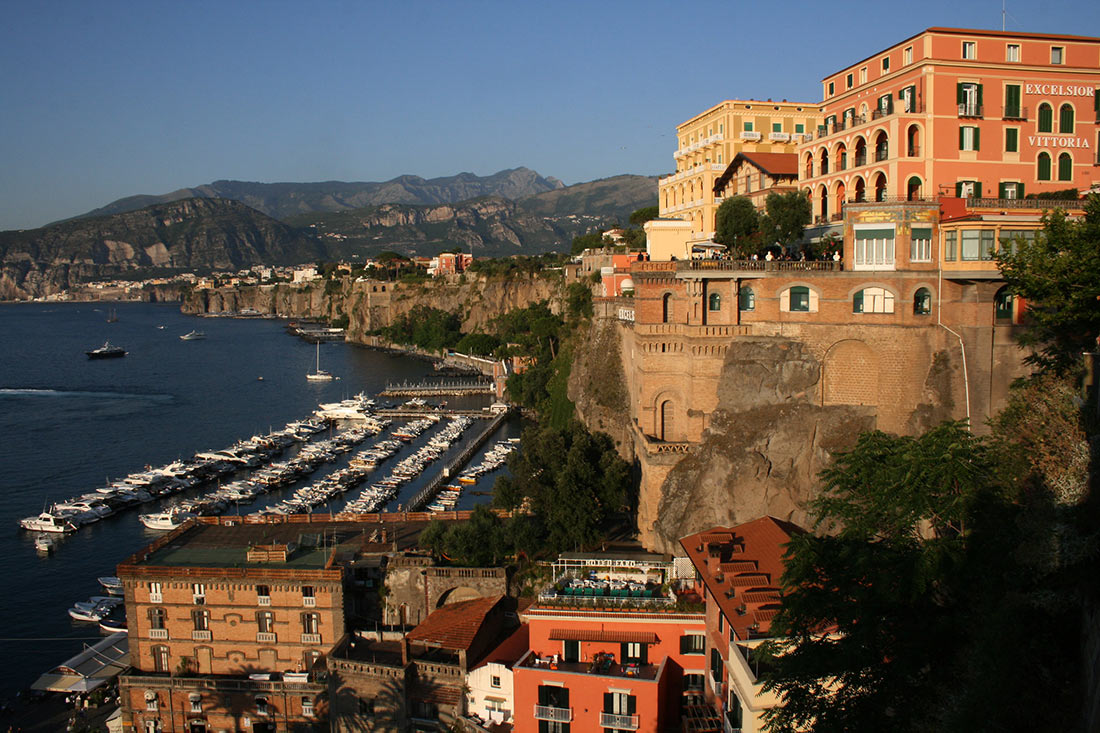
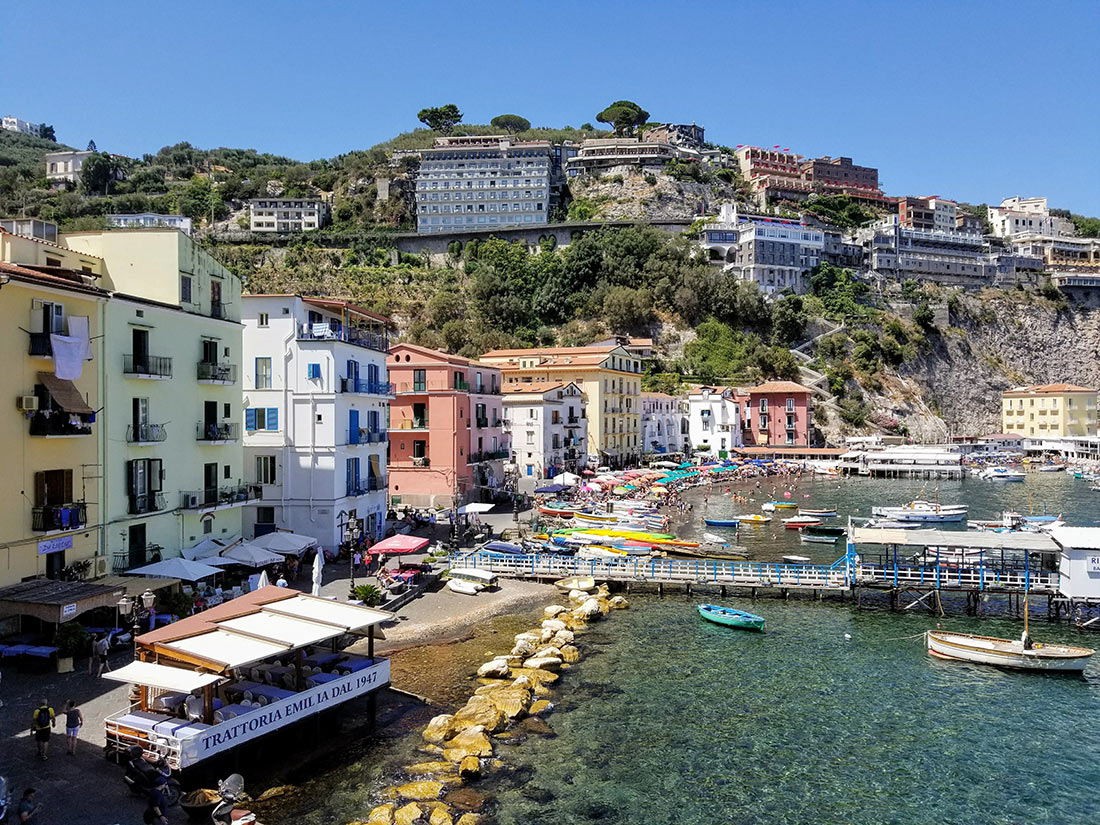
Sorrento is one of the most famous seaside resorts in Italy. Located high above the Mediterranean Sea, it looks like a balcony with amazing views – from the island of Procida to Naples and Vesuvius. The city became a popular summer vacation destination during the Roman era, when the emperors Agrippa, Tiberius and Augustus built their magnificent villas here. In the 19th century, it was a must-stop during the Grand Tour, and the real interest in the city was first aroused by the poet Byron, who inspired literary geniuses, including Goethe, Dickens and Tolstoy, to relax on the picturesque coast. Sorrento can be called an ideal place to relax: there are two beautiful marinas, a lively city center, unforgettable views, great restaurants and, of course, luxurious beaches.
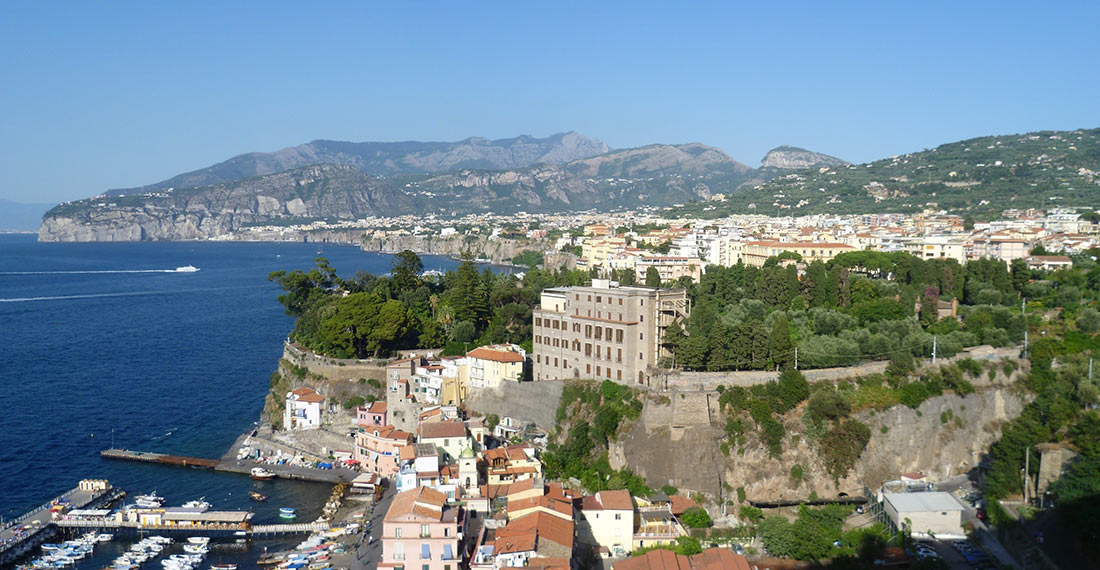
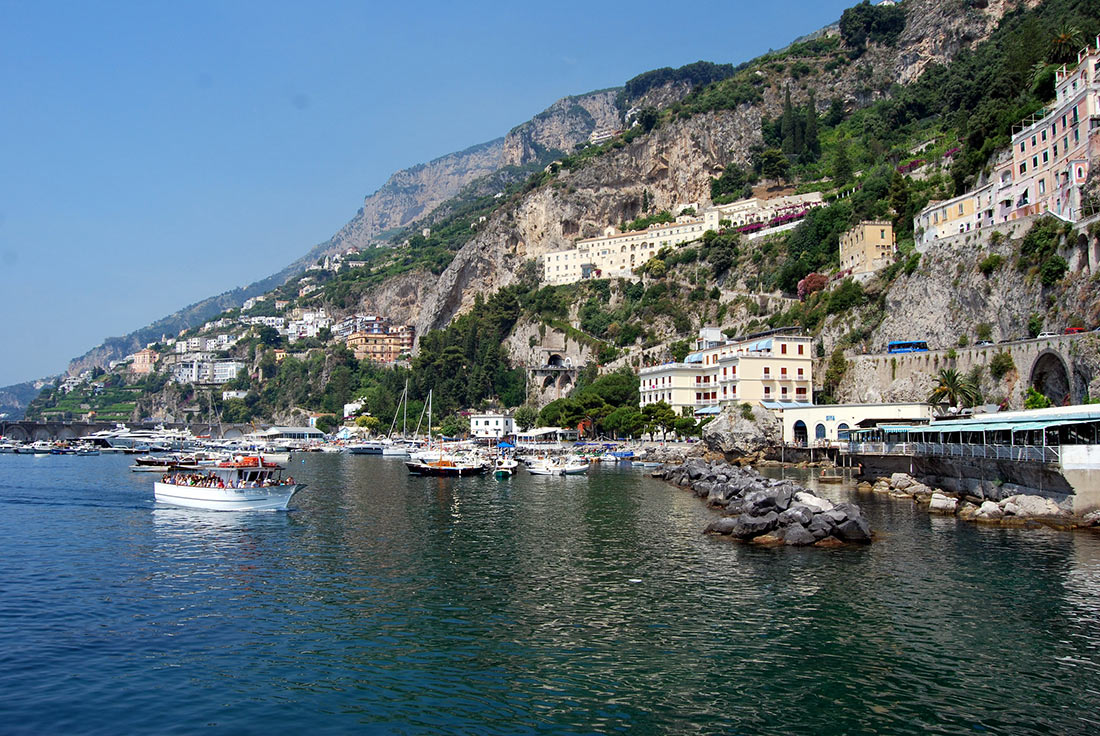
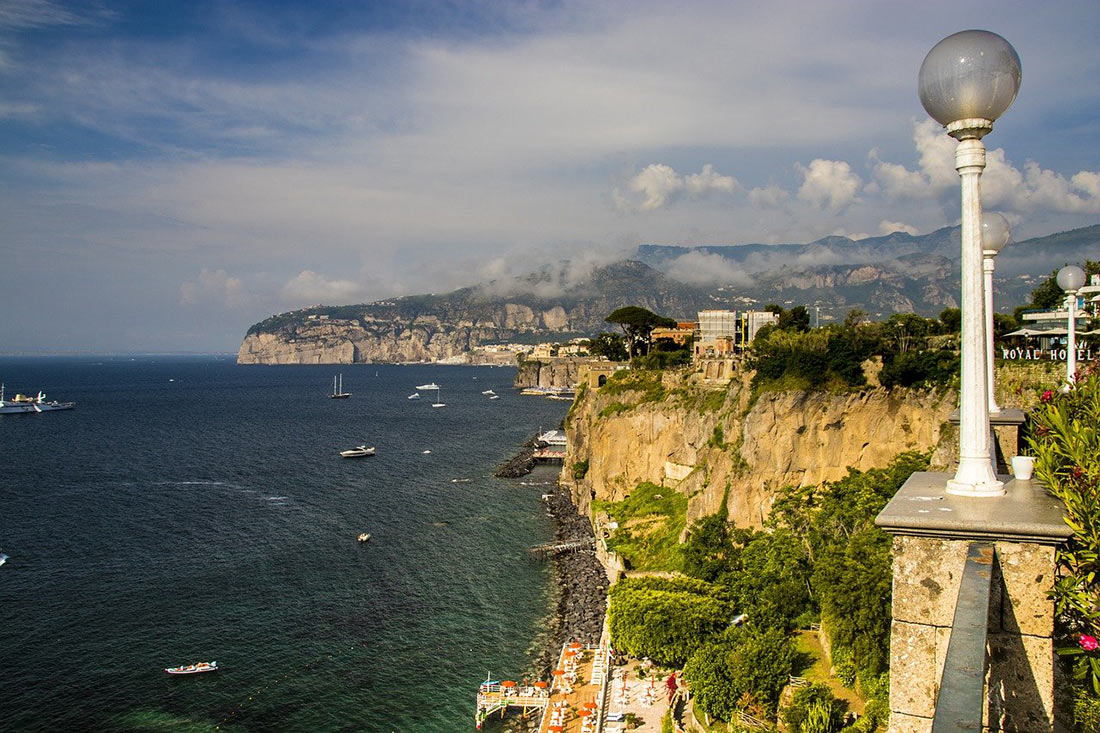
For most of the year, the climate in Sorrento is mild and dry, making this place a perfect holiday destination in any season.
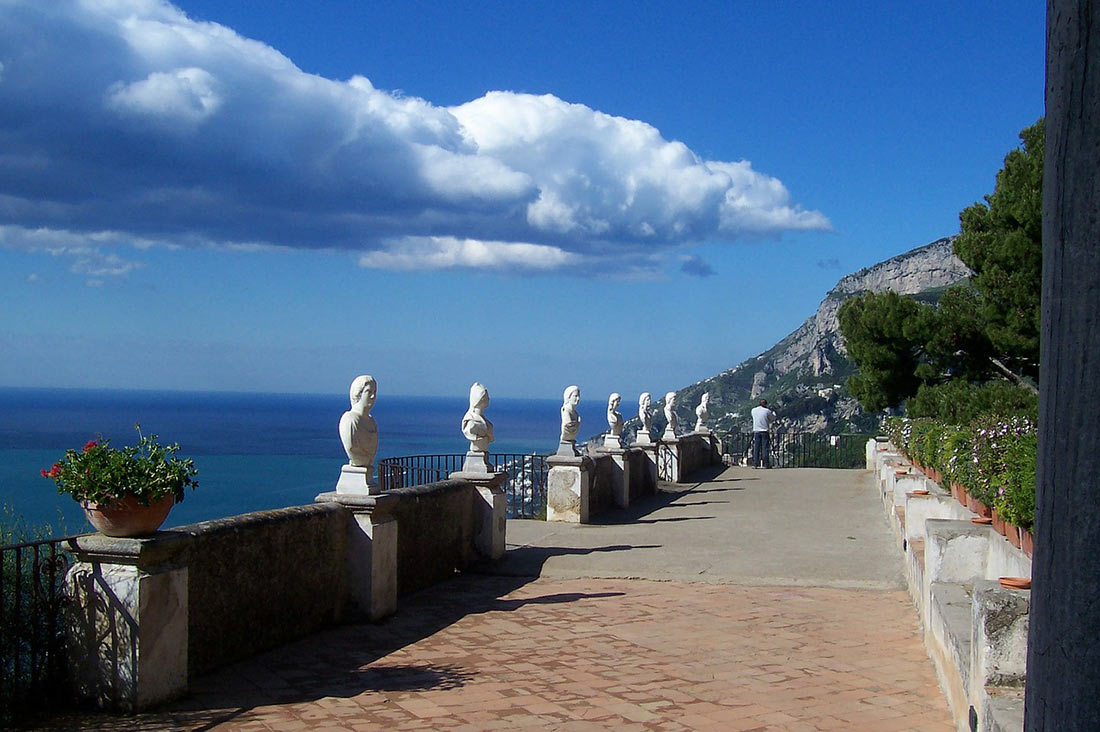
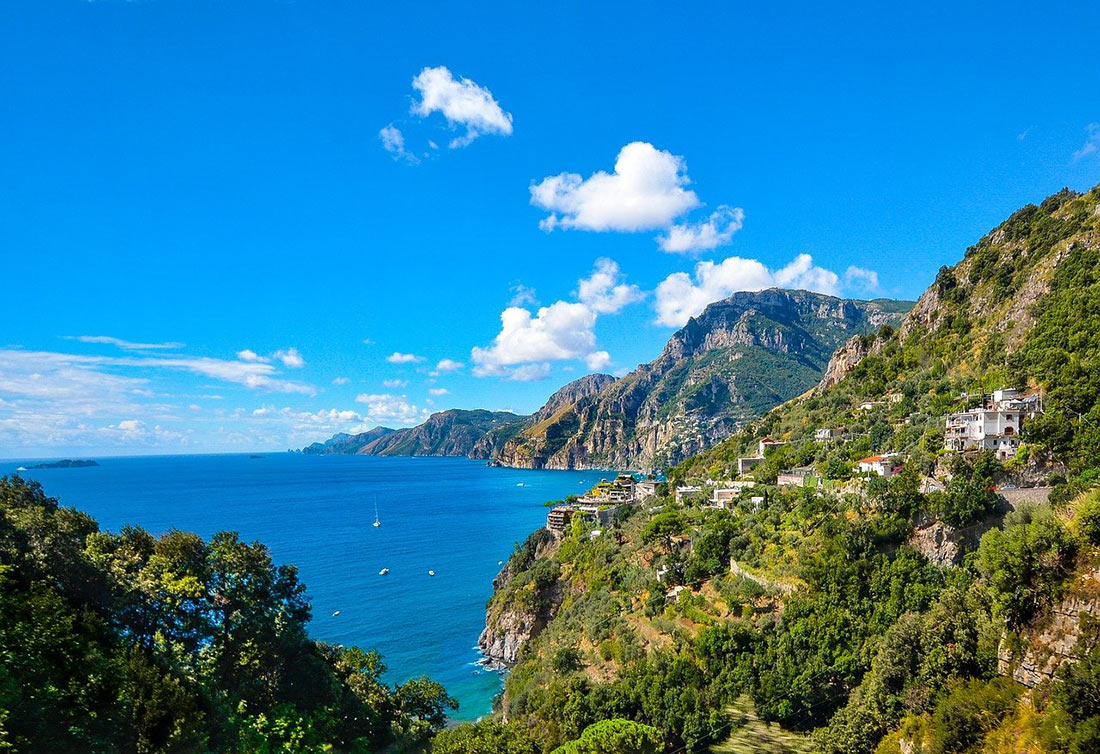
Why is the town of Sorrento called like this?
The town owes its name to the sirens – mythical mermaids who lured Ulysses and his team with their melodic but deadly songs. Sirens are said to have lived in the rocks near Sorrento.
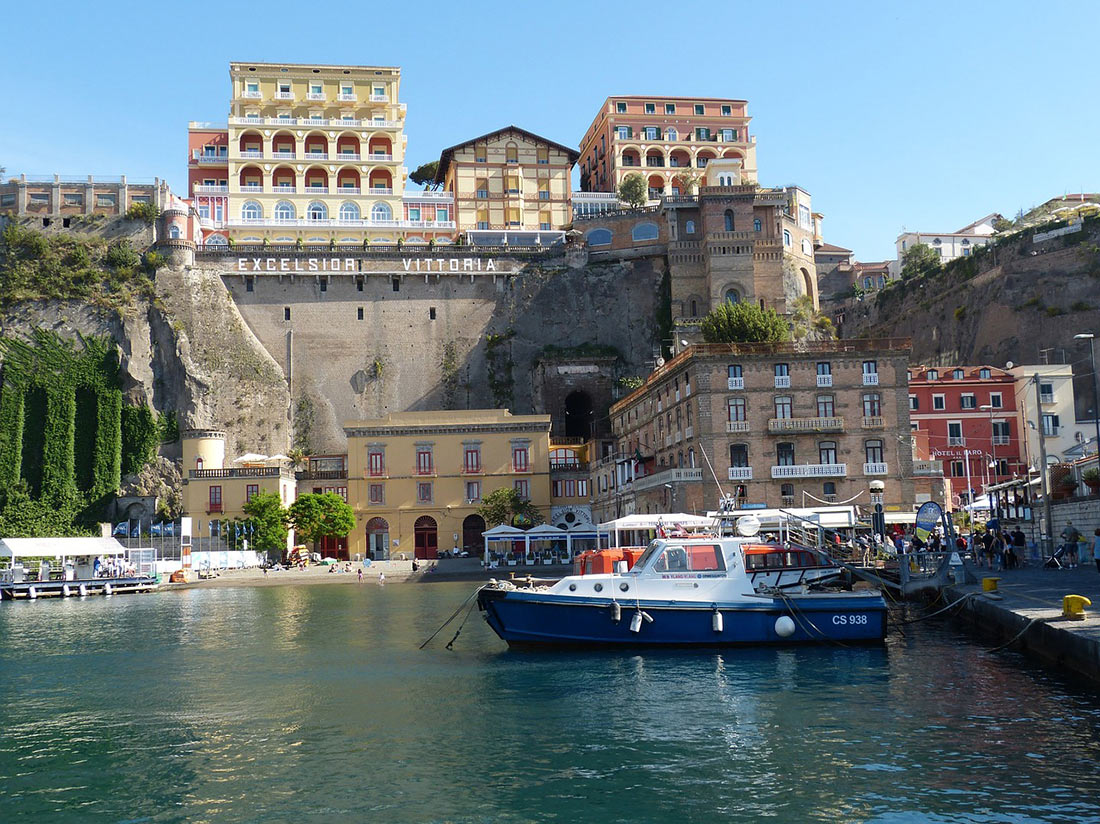
The town survived a series of invasions by Goths, Byzantines and Normans, and was attacked by Saracens and Barbary pirates before becoming a town-state and then subject to the Kingdom of Naples. All these influences can be seen in the architecture of Sorrento, and Spanish notes can be discerned in the local dialect.
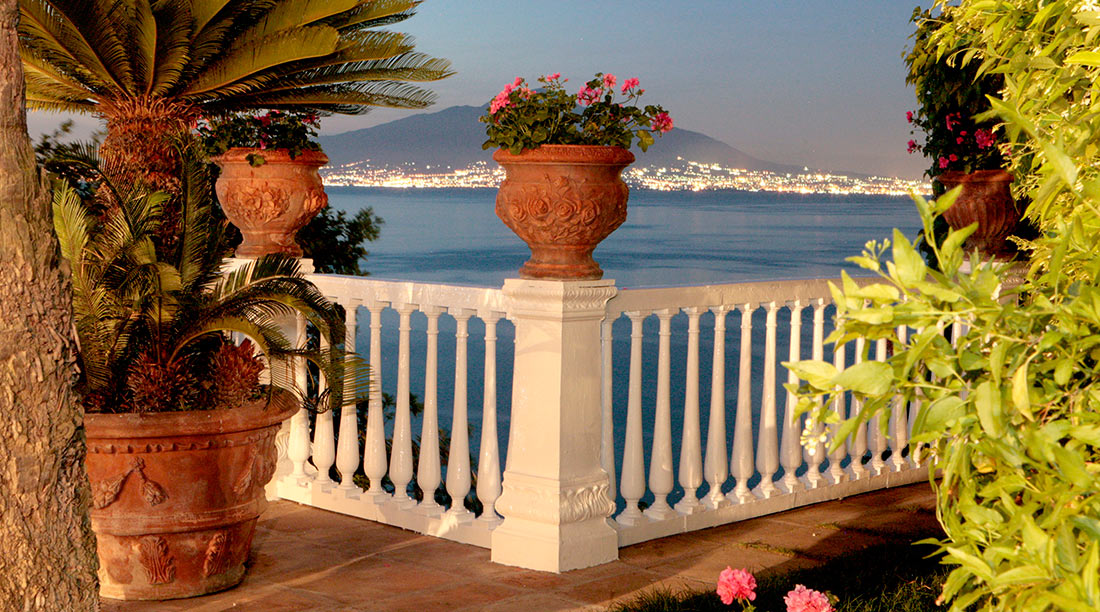
It is believed that real limoncello liqueur is made only from huge, sun-drenched lemons grown in Sorrento.
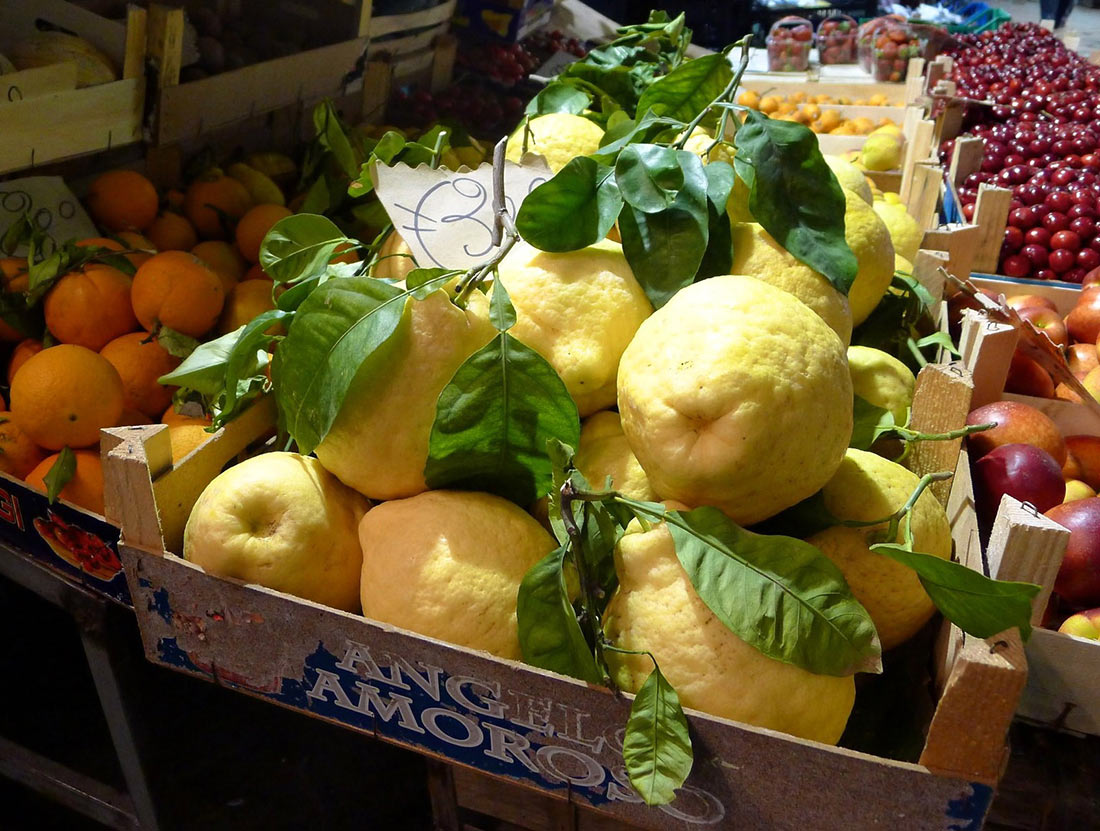
As you walk through the historic center, pay attention at the early 16th century Cedile Dominova Cathedral, the 14th century Correale Palace and the rare 13th century Veniero Palace with elements reflecting late Byzantine and Arabic styles.
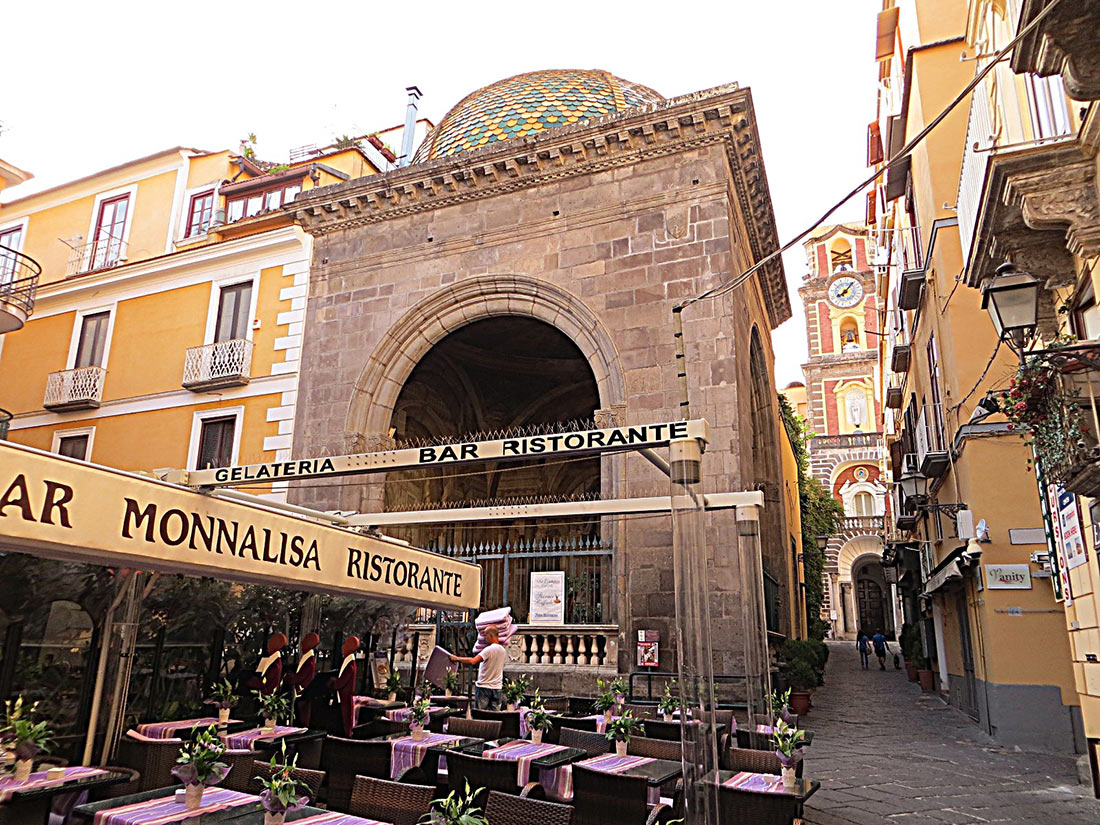
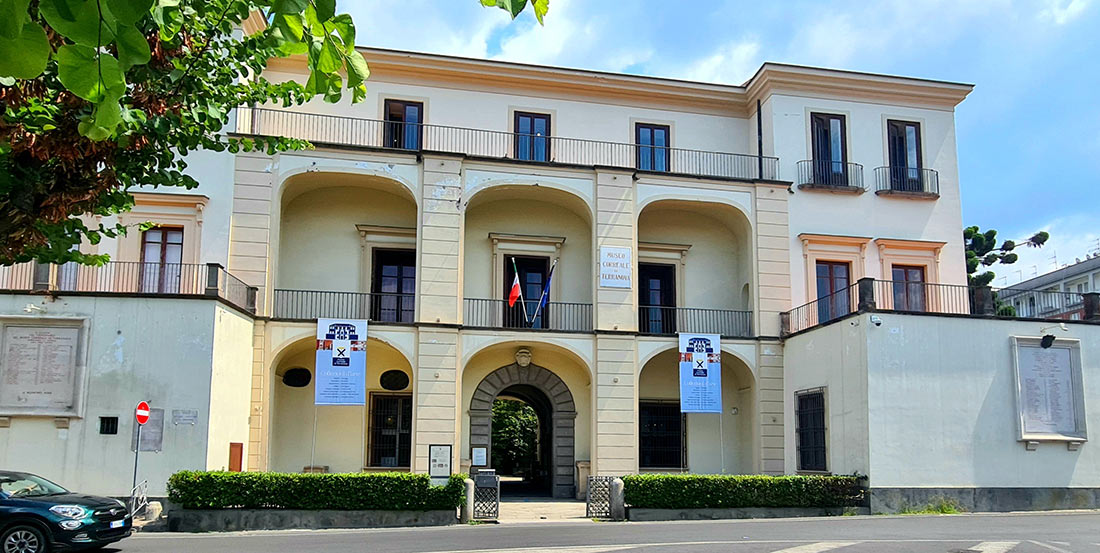
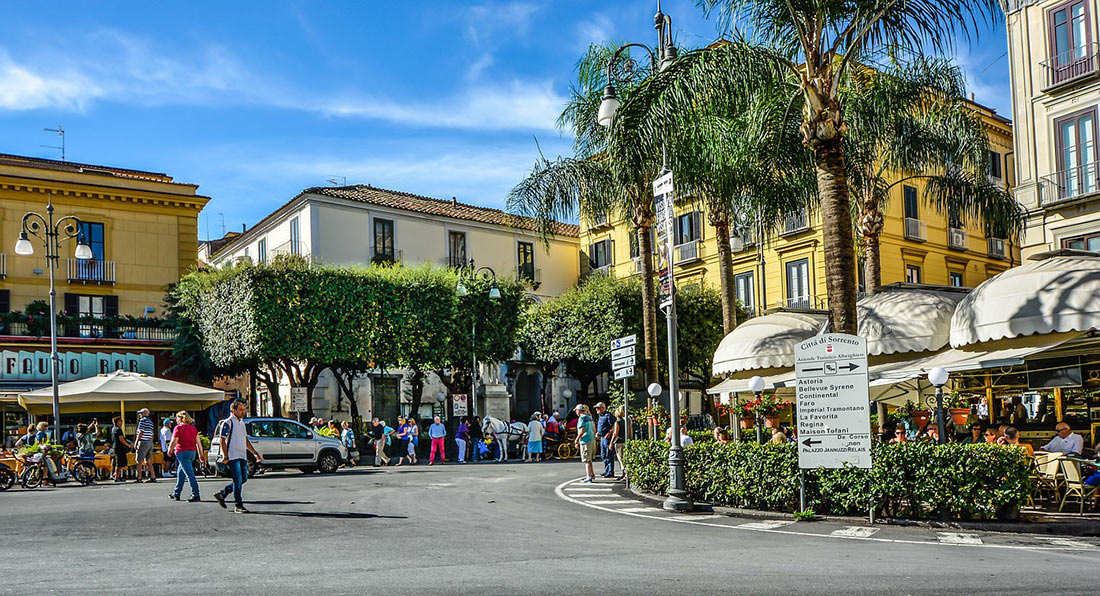
In the very center of the town at the bottom of a deep gorge is the famous Valley of Mills.
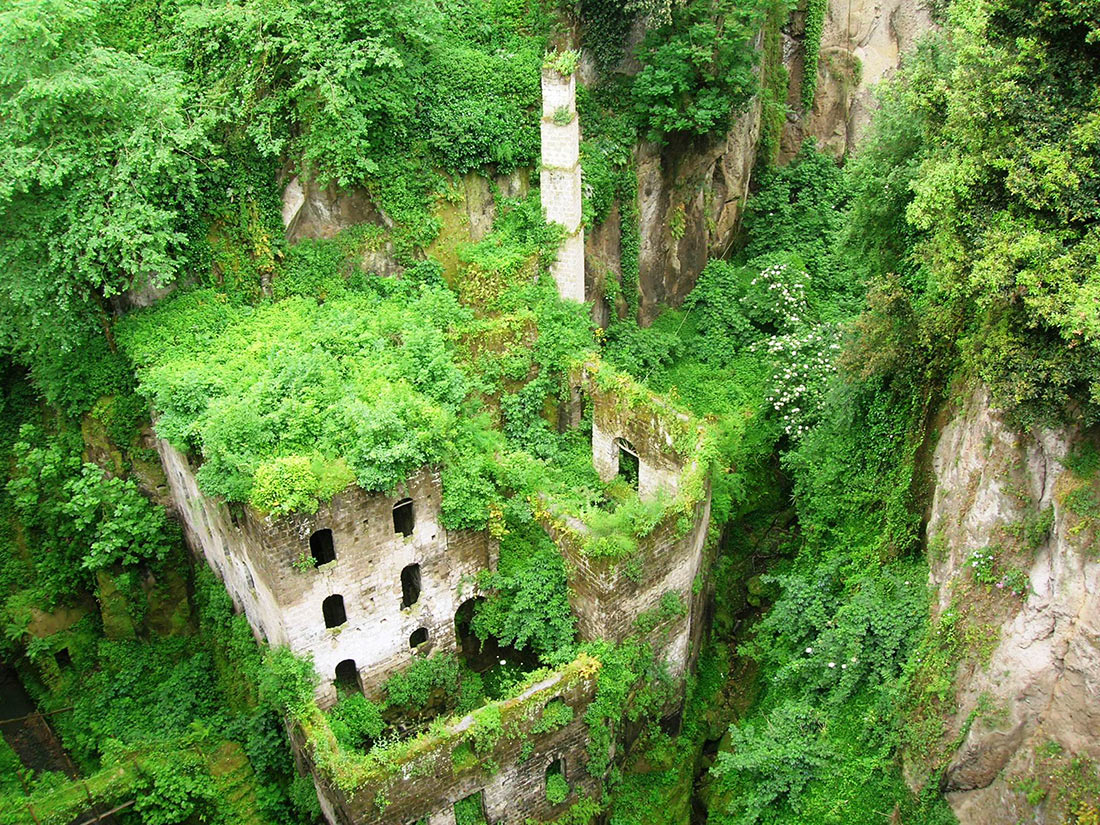
An unforgettable atmosphere, complemented by the exquisite aroma of Italian coffee and the coolness of the sea breeze, is the best way to relax. And if you want a change of scenery, then a day trip from Sorrento will be remembered for historical sites and stunning landscapes of the Amalfi Coast.
